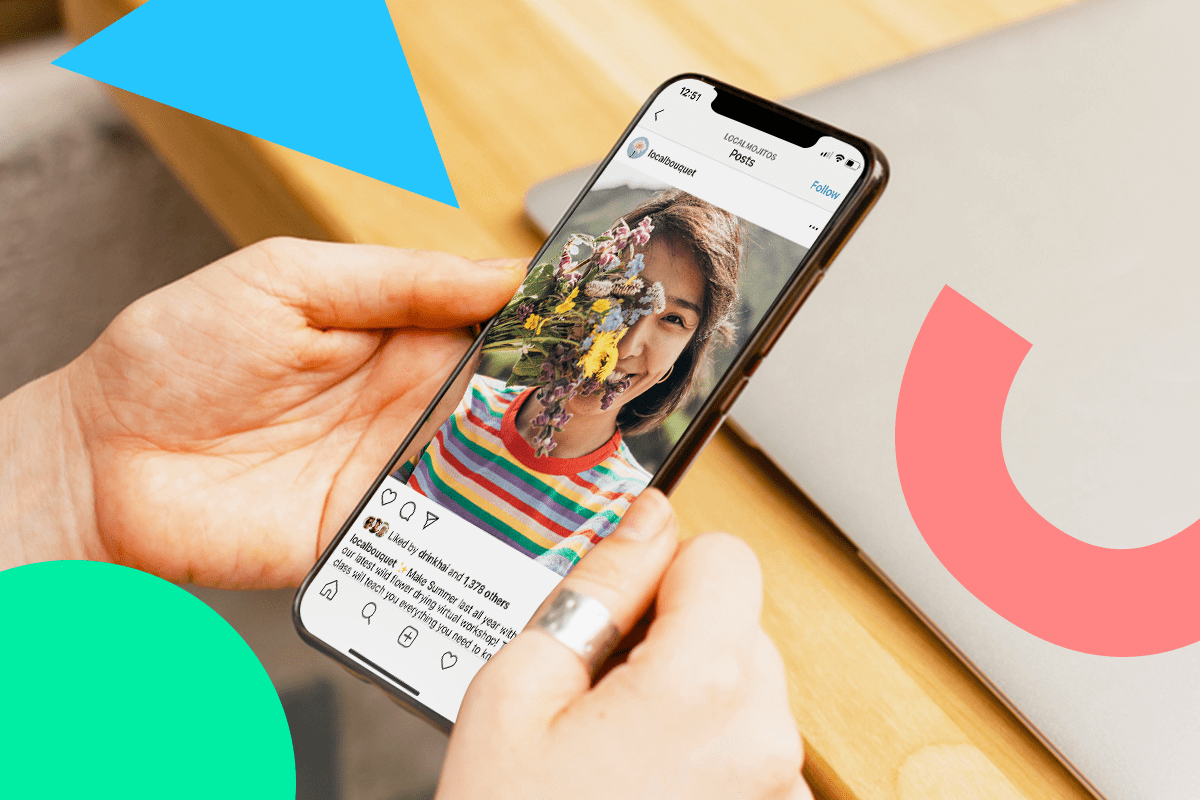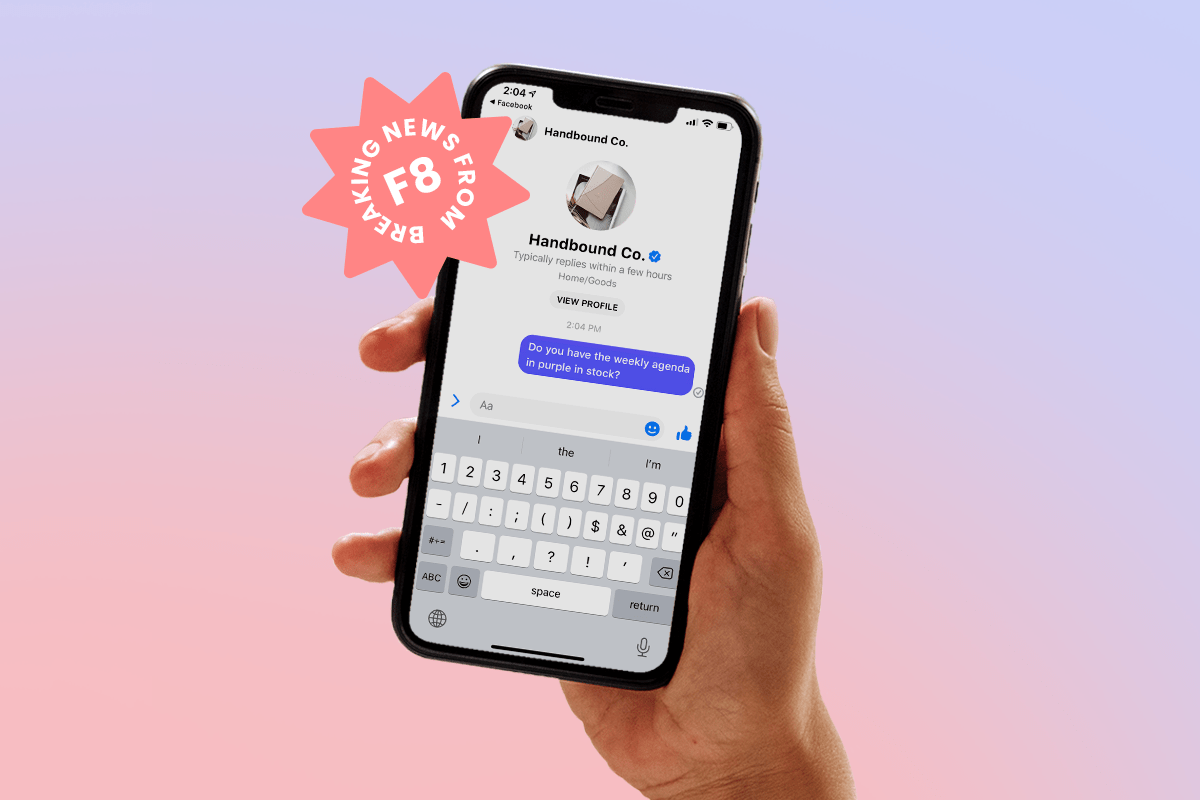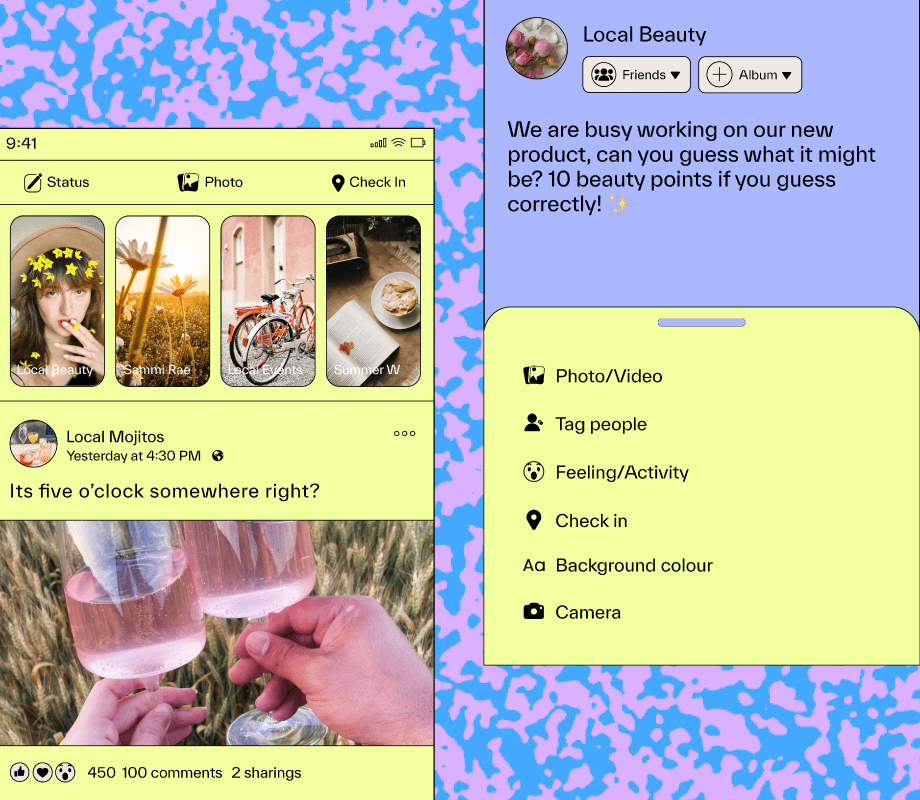Wondering what the top social media platforms for SMBs are?
If you’re a small business just getting started with social media marketing, it can be challenging to know which platform will help you tap into the right audience — especially if you’re a time-strapped solopreneur!
Whether you’re in e-commerce, SaaS, publishing, or otherwise, we’re sharing the top social media platforms for SMBs:
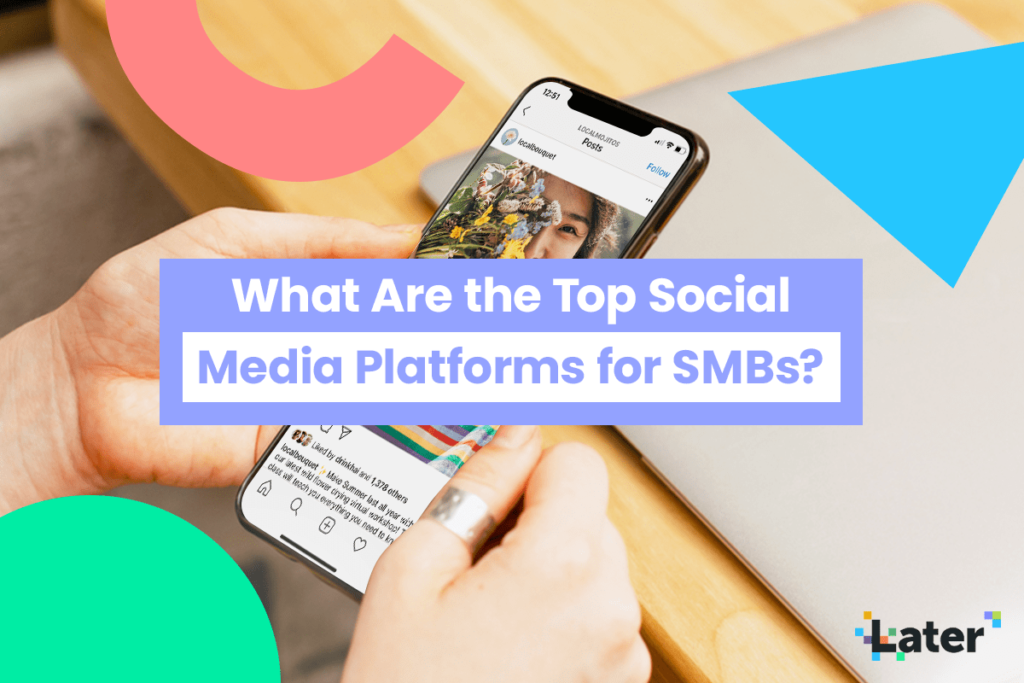
The Value of Social Media for Small Business
There’s no question that social media is an absolute must for every business that wants to remain relevant and visible in today’s busy online world.
From interacting with customers to increasing brand awareness and making sales, the benefits for SMBs are huge.
But where should you spend your energy?
Realistically, it’s almost impossible to build a presence on 5 to 6 different social platforms — that would take way too much time, and you could end up spreading yourself too thin to deliver any real returns.
Your time would be much better spent focusing on the platforms that drive the most traffic and results for your business.
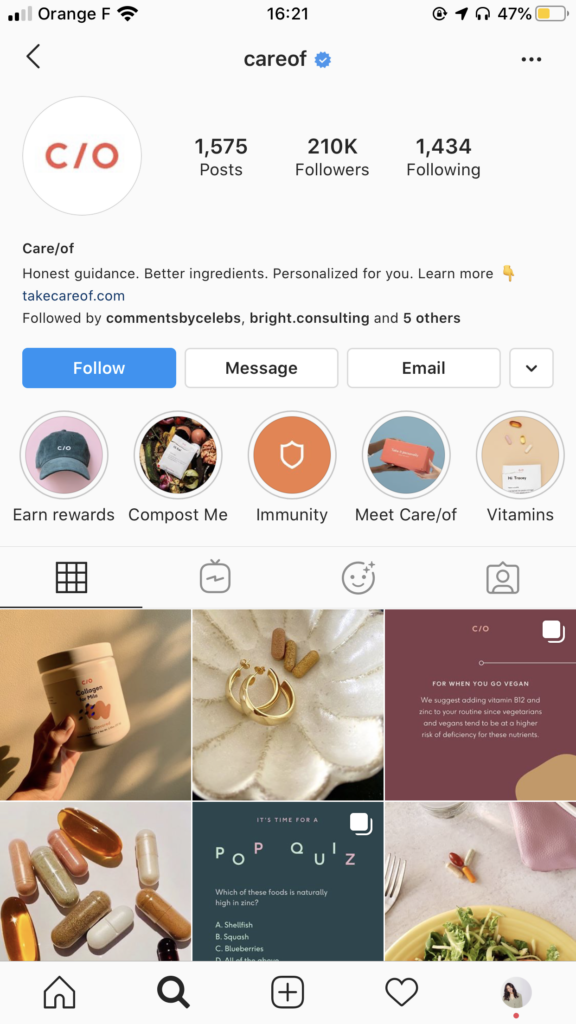
Keep in mind also that some social platforms are better suited to certain kinds of businesses.
For example, Instagram is a major destination for social commerce, whereas Facebook is best for community-building, and Pinterest for inspiration and brand affinity.
So before you get started, it’s a good idea to sit down and define your social media marketing goals. Are you looking to reach new customers? Drive traffic to your website? Boost brand engagement?
Etching your specific objectives will help determine not only what social platforms you choose, but also the content you create and the audience you target.
For example, if you’re a fashion brand with an audience that skews slightly younger, you might find that Instagram and TikTok are your most effective platforms.
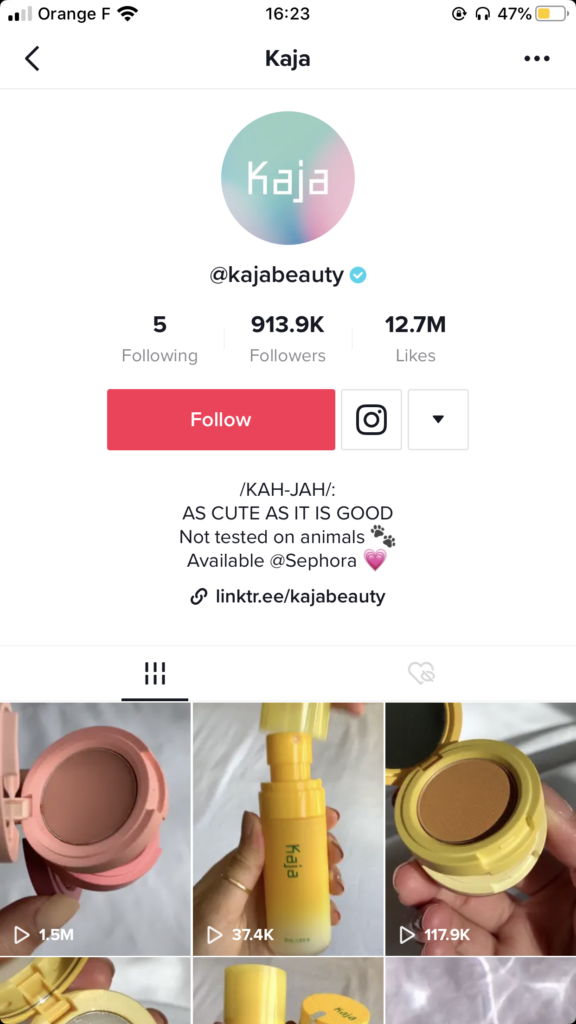
But there are a number of considerations when choosing which platform (or platforms) to invest your time and energy.
Below, we highlight the top social media platforms for SMBs:
Top Social Media Platforms for SMBs #1: Instagram
Instagram has become one of the most important platforms for businesses in recent years — especially for those in the e-commerce and retail space.
From entirely shoppable feeds to a whole host of tools aimed at supporting small businesses, there’s no denying that Instagram is on a mission is to turn the app into a streamlined shopping experience.
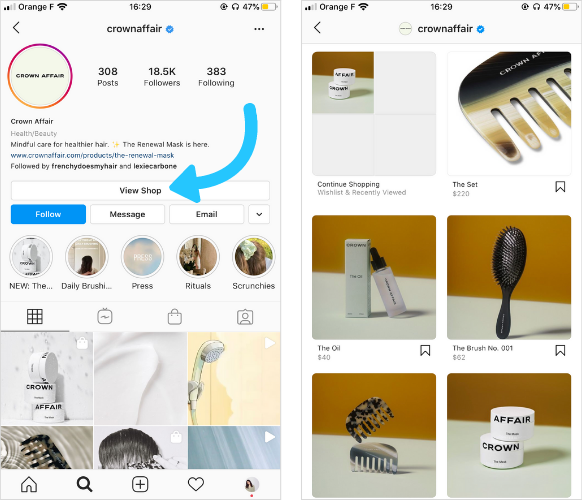
But despite its e-commerce leanings, all kinds of businesses thrive on Instagram — from SaaS companies like Later to publishers like Fast Company.
So just because you don’t sell a physical product doesn’t mean you can’t build a large and engaged audience around your brand.
Just keep in mind that Instagram is, first and foremost, a visual platform, which makes it a really great medium for brands to tell their stories through imagery and video content.

Of course, this can take a lot of time and effort. But if you can nail the visual aspect of your brand and inspire your followers through high-quality photo and video content, Instagram can be an incredible channel for your SMB.
Remember also that Instagram isn’t one “thing” but rather a giant ecosystem with different “surfaces” that you can use to build a bigger and tighter-knit community — this includes Instagram Stories, feed posts, IGTV, Instagram Reels, and more.
Creating content for each of these surfaces can be time-consuming, so if you’re just getting started, it’s a good idea to test each one to see where you get the best results.
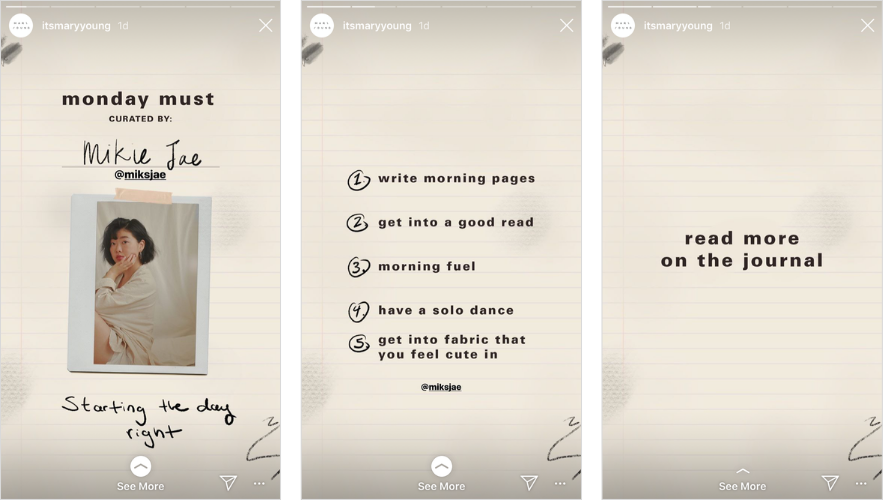
On the bright side, engagement on Instagram is still really high compared to other social platforms, so getting traction with your specific audience isn’t all that difficult.
Add in the fact that influencers are such a big part of the Instagram community means that you have plenty of opportunities to partner with relevant voices who help drive interest back to your business and products.
But where Instagram is somewhat lacking is in its ability to provide “group forums” for followers to interact among themselves. There are, of course, plenty of ways to encourage conversations through comments and DMS, however interactions between your followers isn’t a focal point like it is on Facebook where you can create Facebook Groups.
In terms of audience demographic, Instagram is a little younger than Facebook, with the majority of users in their teens, twenties, or early thirties. However, Instagram users over the age of 50 are on the upswing, as they’re becoming more comfortable using social media.
Top Social Media Platforms for SMBs #2: Facebook
Despite changing social media tastes, Facebook is still the biggest platform with over 2.7 billion monthly active users!
But while Facebook’s official active user counts continue to rise quarter-on-quarter, various reports have suggested that Facebook engagement (i.e. the amount of time people are spending on the platform) is actually in decline.
For example, a recent Pew Research study found that 42% of Facebook users had reduced their daily activity and engagement on the platform.
Despite the declining engagement, Facebook is still an incredibly popular channel for SMBs — in fact, over 90 million small businesses use Facebook and its related products.
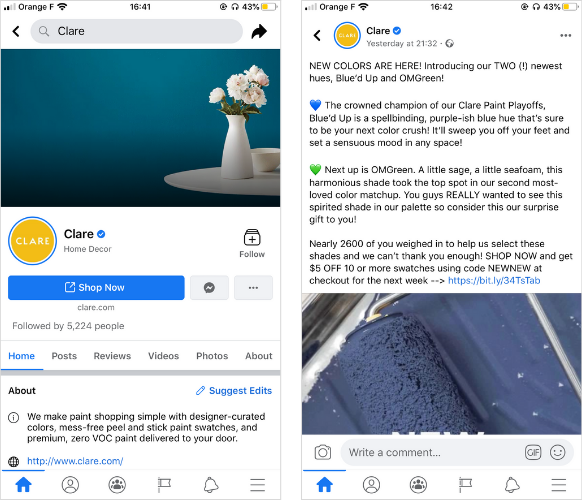
That’s because it’s so multifaceted.
Potential customers can use Facebook to discover new businesses, research them, receive ads, and more. And if your SMB has a Facebook Page (it should!), you can establish brand credibility and even take care of a customer from start to finish without ever leaving the site.
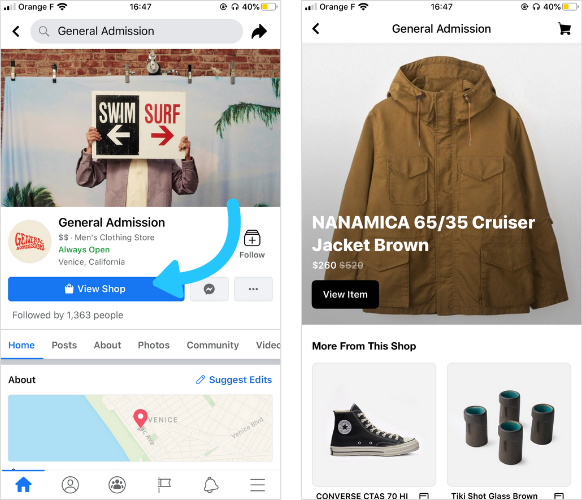
It’s precisely these things that make Facebook such a top social media platform for SMBs – it’s robust with features.
You can use Messenger to provide customer support (and even generate leads), you can create Facebook Groups to spur community engagement among your customers and brand advocates, and you can run highly targeted ad campaigns.
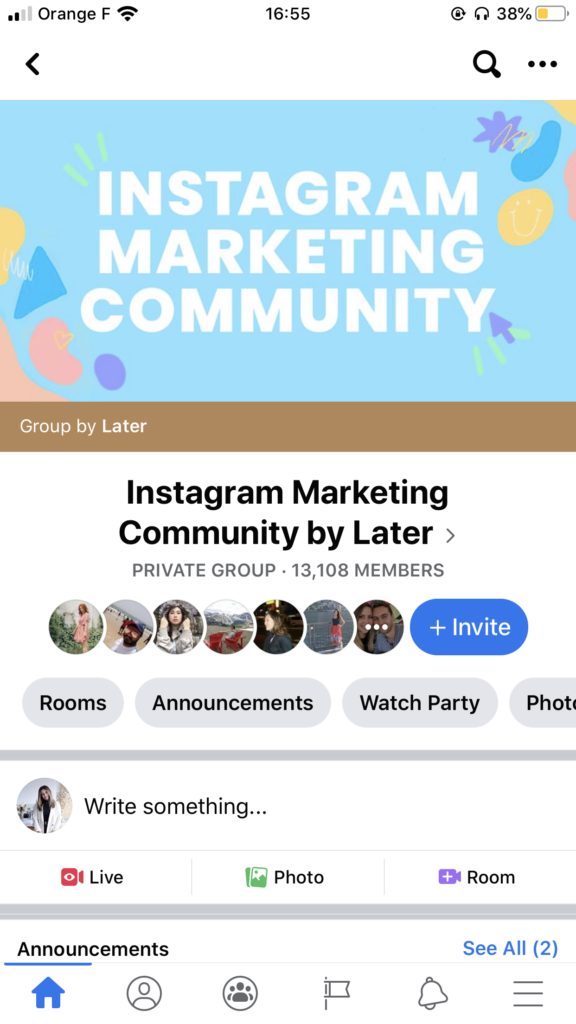
Facebook Groups, in particular, are a super-effective and low-cost way to create a community, drive engagement, and improve customer relations for your brand or business.
Basically, they allow you to own a space where direct, two-way communication can occur between you and your customers.
And you can use this space for all kinds of things! Like monitoring audience sentiment, responding to queries, de-escalate issues, and gaining a better understanding of your audience demographic and what they care about.
For example, fans of skincare company Drunk Elephant created a group called Drunk Elephant Skincare Addicts, where its 5.3K members can share their beauty routines and discuss anything and everything related to Drunk Elephant:
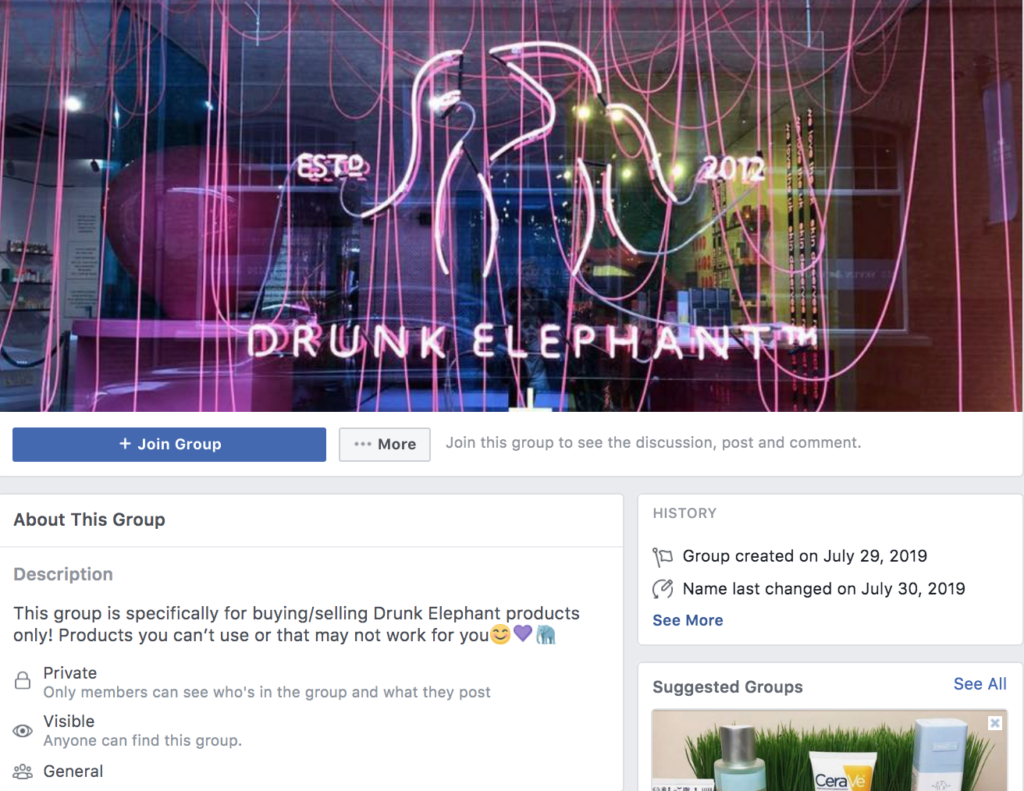
Indeed, while your Facebook Page is like an extension of your store or blog — Facebook Groups are a space for users to connect and communicate with like-minded people about shared interests, so they’re perfect for community-building.
Top Social Media Platforms for SMBs #3: Pinterest
When most people think of Pinterest, they think of DIY crafts, home décor ideas, and fashion trends — but it’s so much more than that!
Because so many people use Pinterest to find inspiration for their interests and hobbies, it can be an incredible channel for SMBs to showcase their products, engage with their audience, and even run ads to help boost awareness, drive sales, or increase conversions
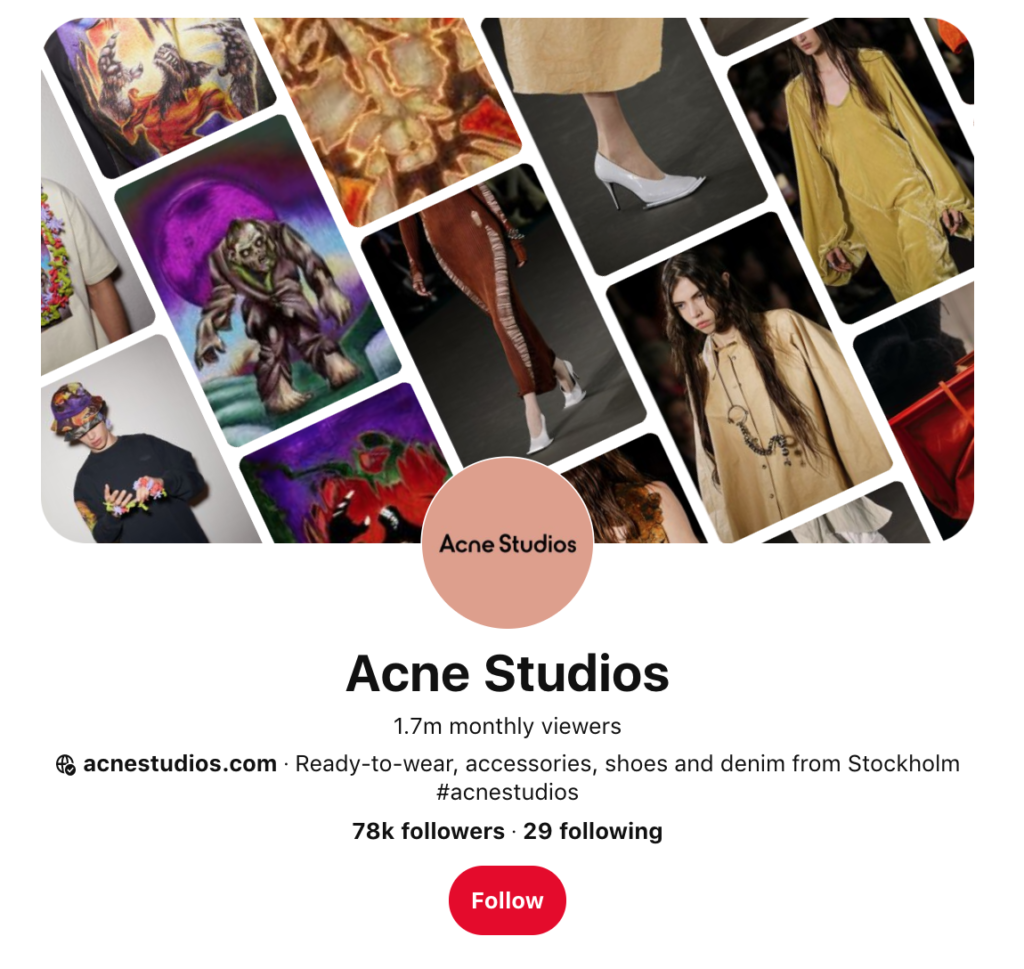
But there’s also a lot of power behind regular Pins.
Unlike Instagram posts, every Pin contains an image or video, plus a link to your store or site – so you can easily drive traffic and sales.
In fact, Pinterest drives 3.8 times more sales than other social media platforms and 89% of people on Pinterest use it for purchase inspiration.
Of course, with 400 million monthly users, the platform isn’t nearly as big as Instagram or Facebook. So before you go all-in on Pinterest, you should spend some time looking at who is using Pinterest and whether or not this group matches your business’ target audience.
Like with Instagram, Pinterest’s users skew a little younger than Facebook – half of all U.S. millennials use Pinterest every month.
And according to internal data, Pinterest reaches 77% of all women 25-54 in the US – a demographic that is estimated to control almost 75% of discretionary spending by 2028.
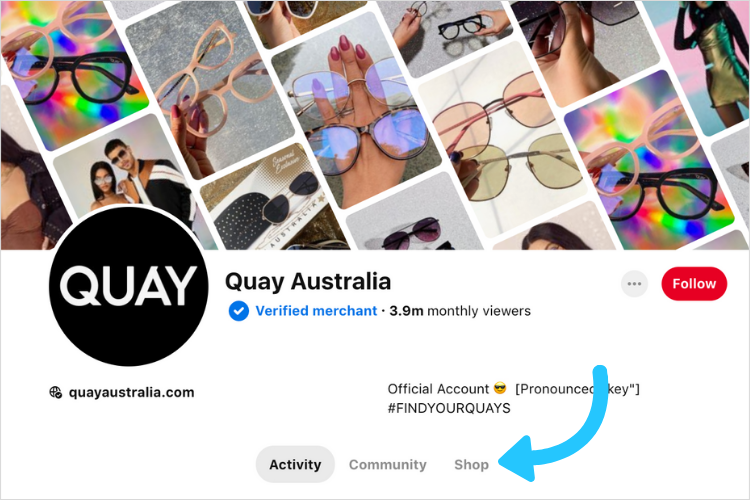
Another reason why Pinterest is a top social media platform for SMBs is that it isn’t just a social network, it’s a visual search engine.
This means that your content can be discovered by almost anyone searching on Pinterest at any time – giving your content a much longer shelf-life than on Instagram, Facebook, Twitter, and beyond.
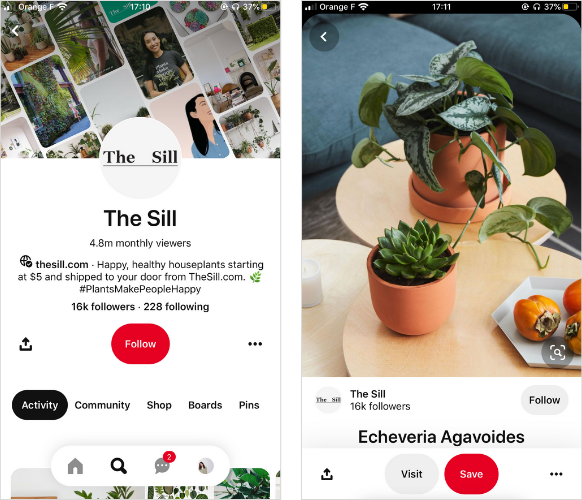
In terms of interest areas on Pinterest, the biggest ones are fashion, food, cars, interior design, and travel, so there are touch-points for a large variety of users.
And when it comes to spending power, a recent survey by Pinterest found that 93% of Pinners use Pinterest to plan purchases, and 40% of Pinners have a household income of $100k+.
For businesses, that’s a huge amount of users who are ready and willing to spend based on what they discover on Pinterest.
In other words, if your target audience is on Pinterest and you haven’t tapped into it as part of your business strategy, you could be missing out on the chance to reach potential new customers.
Top Social Media Platforms for SMBs #4: TikTok
TikTok might be one of the newest social platforms on the block, but it’s already proven itself as a fully-fledged marketing machine for SMBs.
And whether educational videos or fun dance routines are your thing, there’s a space for your brand or business to make its mark on TikTok.
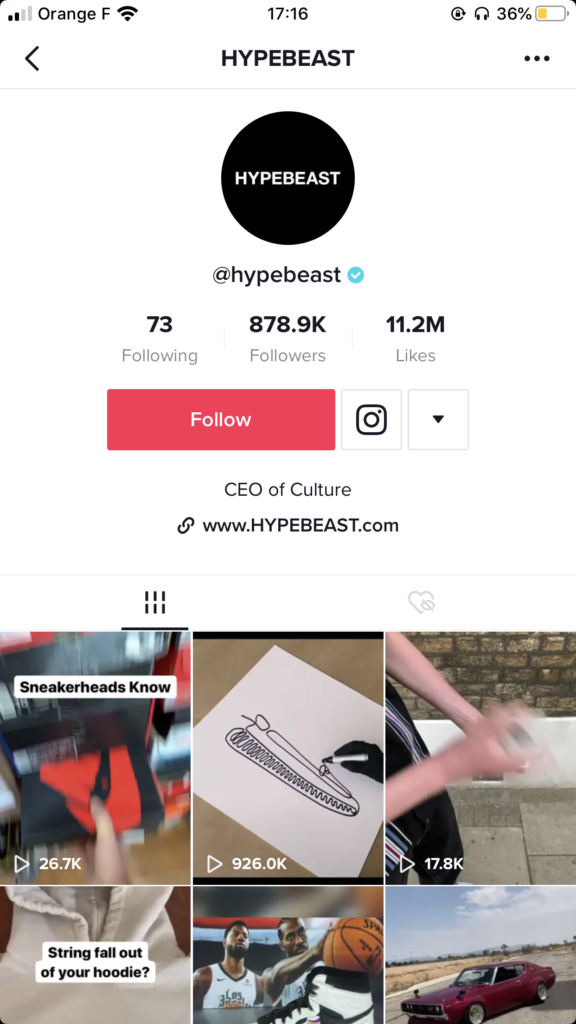
Like with Instagram Stories, TikTok is a space where brands, businesses, and influencers can have fun, be their authentic selves, and try something new. And, chances are, there’s an audience out there that’s perfect for your brand.
In fact, user demographics on TikTok have undergone a major shift in the last 6 months.
According to AdWeek, Millennials now make up a greater share of TikTok’s user base than ever before.
With over 24% of the platform aged between 25-34, TikTok is suddenly a much more attractive platform for brands and businesses looking to reach customers with a stronger purchasing power.
And while TikTok was once dominated by Gen-Zers, the 18-24-year-old user bracket fell by over 5%.
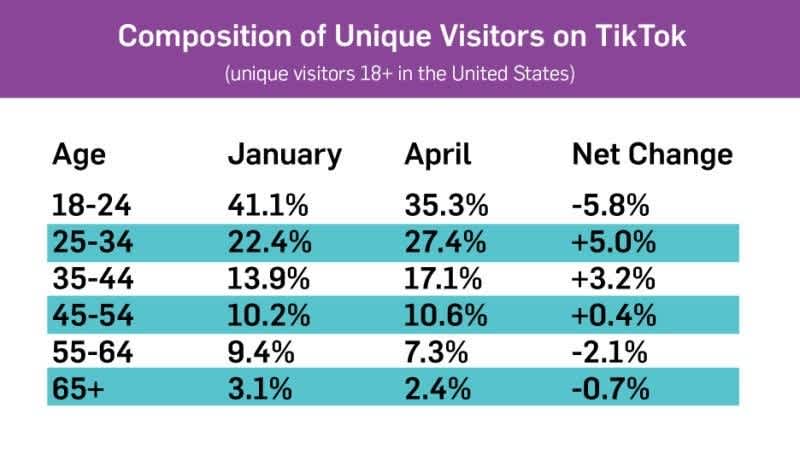
TikTok’s rapidly growing user base has also fuelled a diverse array of content on the platform, driving new opportunities for brands to get creative on the app.
Once dominated by viral dance trends, TikTok videos now span almost every vertical imaginable – from beauty tutorials and home decor hacks to fitness videos and educational content covering current events and social issues.
Plus, it’s still relatively easy to go viral as a brand on TikTok. TikTok’s unique algorithm means that even accounts with zero followers can get millions of views on a new video.
So with all this in mind, TikTok presents a big opportunity for brands looking to boost their awareness, create innovative and engaging content, and tap into a rapidly growing audience.
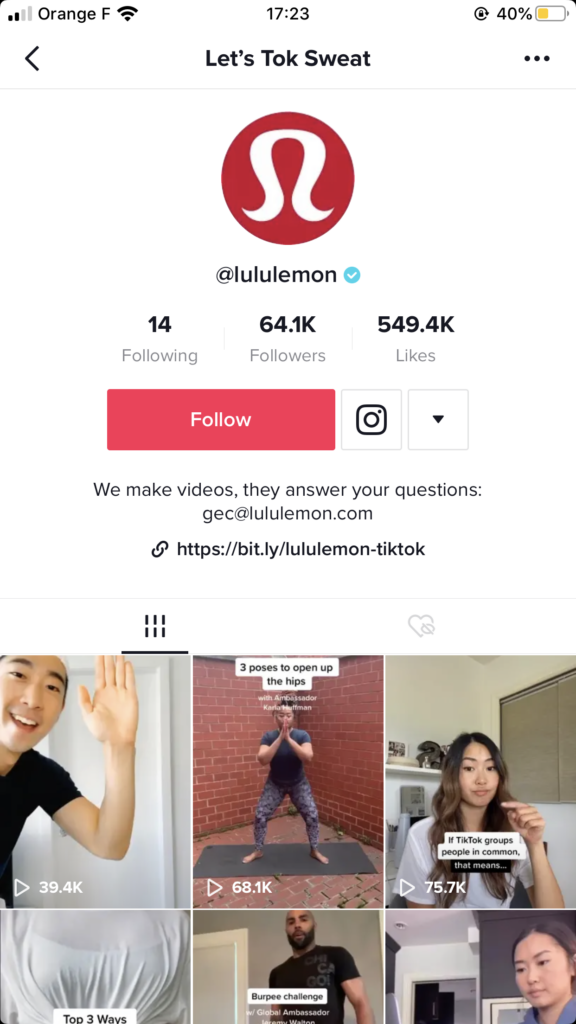
On the downside, since TikTok is still so new, it doesn’t offer quite as many business tools as some of the other social media platforms we’ve discussed so far.
Yes, you can run ads on TikTok and access fairly comprehensive analytics, but that’s pretty much it as far as business features go (although TikTok does have a creator platform in the works).
Nonetheless, whether you’re looking to make sales, drive traffic to your website, or launch a new product, TikTok can drive great results for SMBs.
Top Social Media Platforms for SMBs #5: Twitter
Unlike the other social media platforms we’ve highlighted so far, Twitter isn’t so much a visual platform as a modern public square where many voices (including brand voices) can discuss, debate, and share their views.
So it’s the perfect platform if your business is about immediacy and you want to reach out to followers with breaking news, announcements, important messages, and other in the moment information — basically, it’s the real-time voice of your brand.
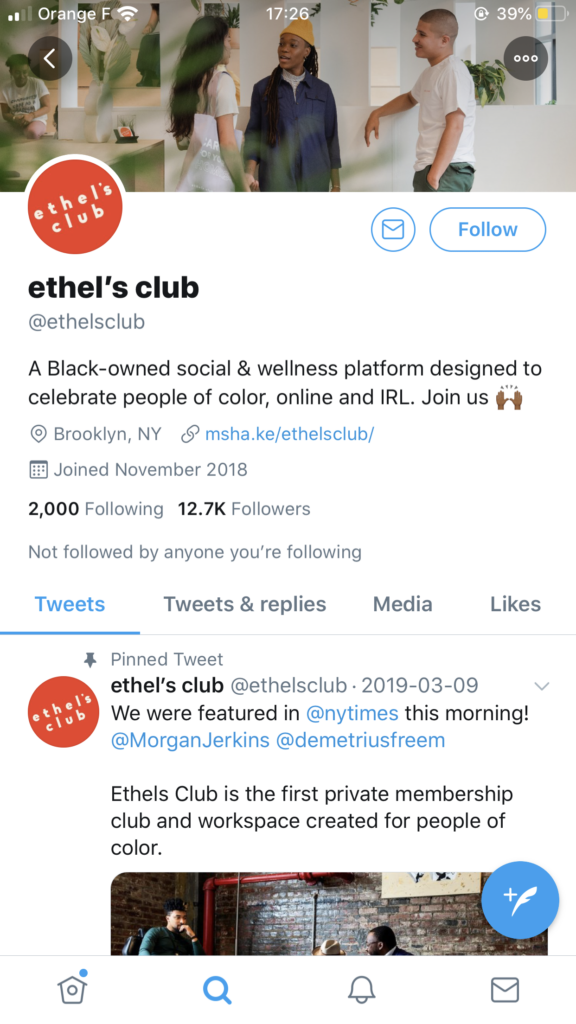
Part of Twitter’s power also lies in its audience, which is highly engaged, receptive, and passionate.
There are 330 million monthly active Twitter users (putting it a step below Pinterest) and the majority of them are below the age of 50 (38% are between the ages of 18 and 29, 26% users are 30-49 years old).
Twitter users are also 1.6x more likely than non-Twitter users to use social media to research and find products to buy, so it’s a great network to reach potential customers.
Not to mention that you can run highly-targeted ad campaigns on Twitter based on a number of parameters including interests, demographics, operating system, brands they follow, and a variety of other variables.
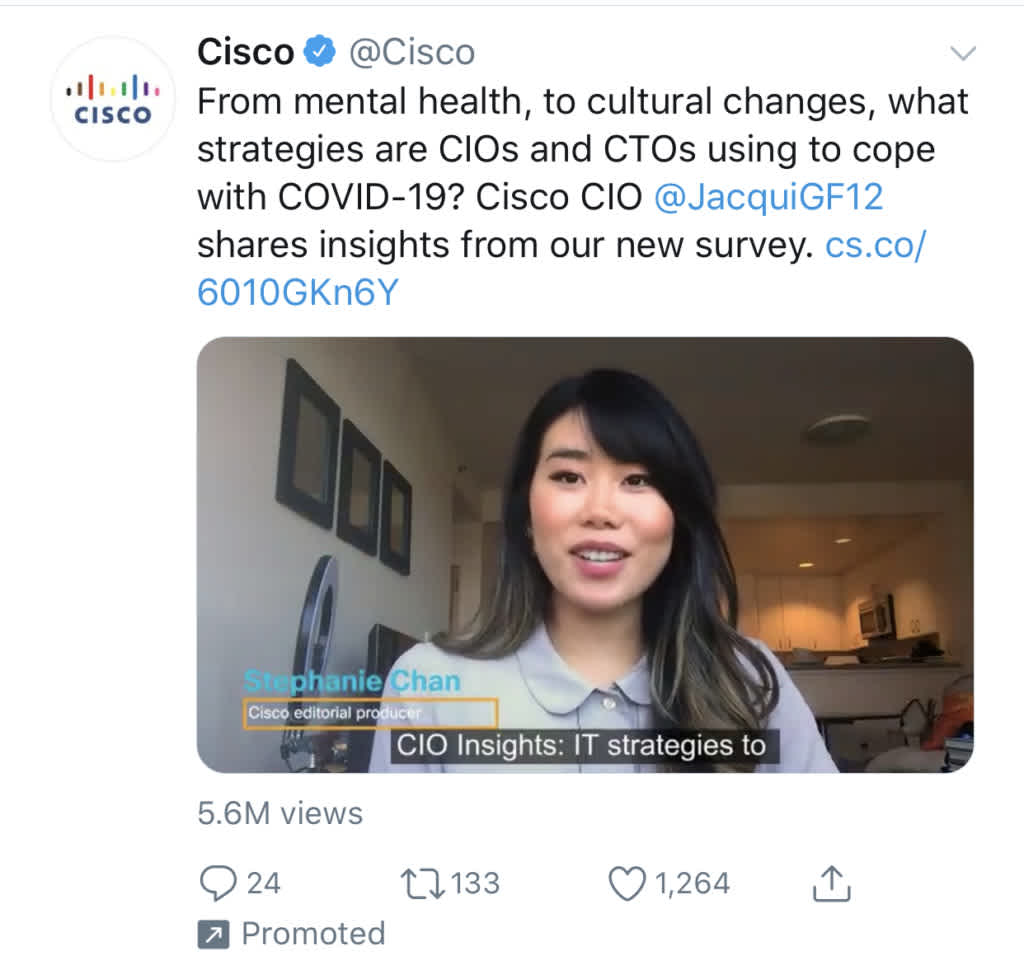
Also, because Twitter is, for the most part, a text-based platform, it’s much less time-consuming than platforms like Pinterest and Instagram.
You can easily put together a 280-character tweet and send it off to your community.
Of course, the difficult part of this is ensuring that you have a consistent and engaging brand voice!
And that’s it! Social media marketing is no longer a nice-to-have – it should be an essential part of your SMB’s strategy.
Which social media platforms do you use? Let us know your favorites in the comments!
Ready to take your social media marketing to the next level? Later makes it easy for you to plan, manage, and schedule your Instagram posts!
